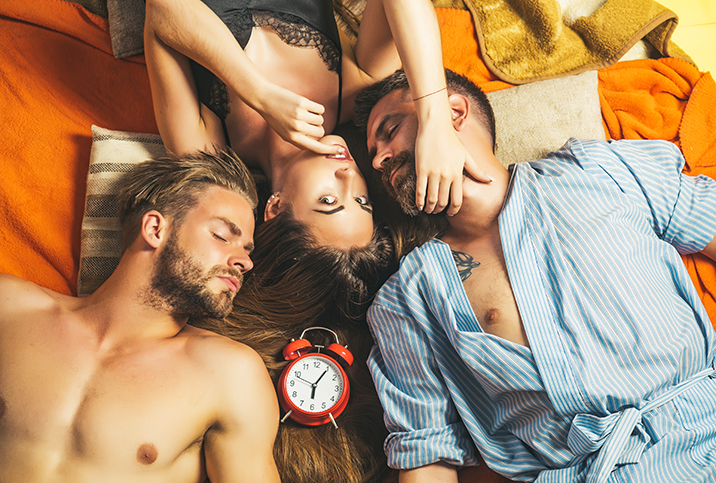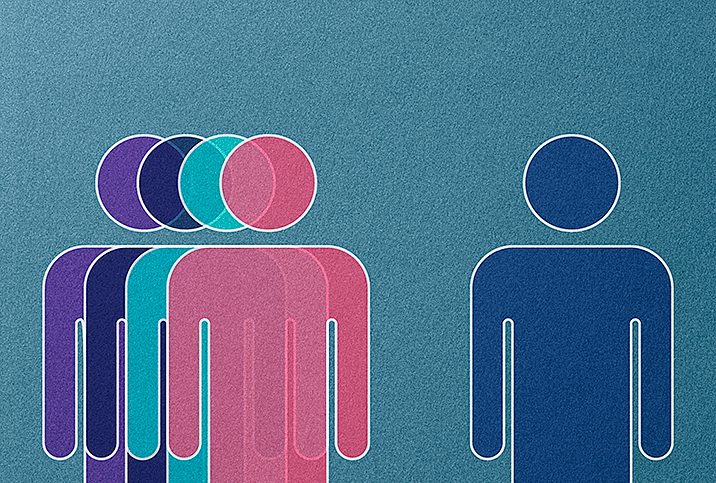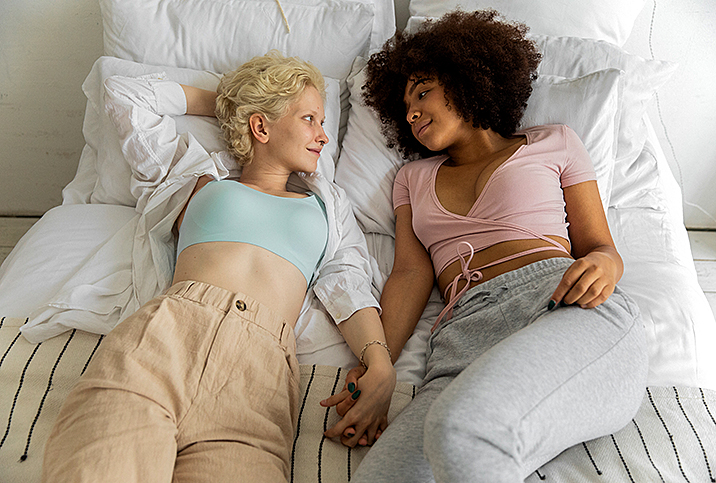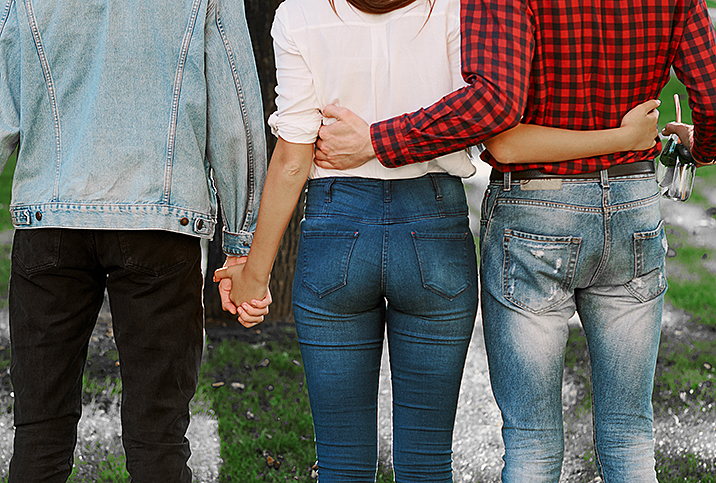Nonmonogamy Freed Me From Relationship Guilt
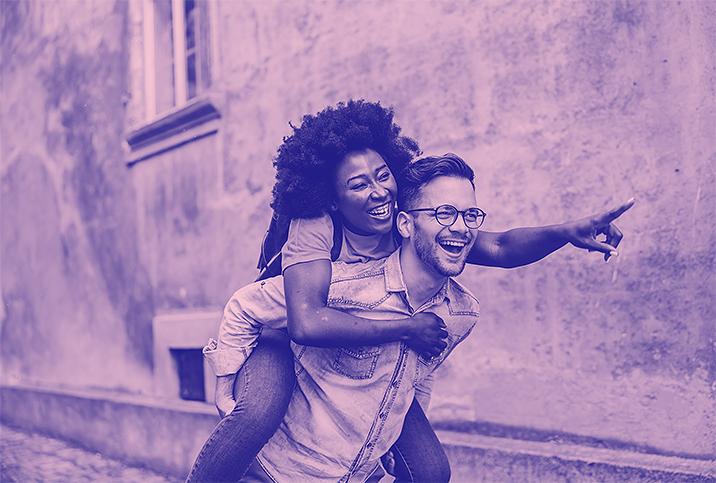
When I began experimenting with the dating scene, I thought something was wrong with me and how I navigated relationships. No matter how lovely my partner was, I got bored quickly, and constantly craved the excitement of a new hookup or flirtation.
Classical societal standards say this was immature and selfish, and that good people should stay with a partner and be happy, one person at a time.
Monogamy and morality
No matter how good my monogamous relationships were, I would inevitably feel a sense of panicked containment. I'd feel suffocated and stifled, which would lead me to distance myself from my partner and lash out.
I'm ashamed to admit this led me to cheat, sabotage my relationships and hurt people I truly adored. I felt immense guilt, embarrassment and self-hatred as I struggled and chafed in monogamous relationship structures.
I didn't feel jealousy the way my partners said I should, and was told this must mean I didn't care about them. I internalized this and figured I just hadn't met the right person. If I really loved someone, eventually I would feel some type of jealousy or ownership, right?
However, this didn't sit right with me, either. I didn't like the idea of "possessing" or being responsible for a partner—a fully fledged, autonomous adult. I also didn't believe it was right to micromanage my partner's feelings or desires, so why should they dictate mine?
At the time, I didn't know there were any relationship alternatives that might suit me better.
Exploring nonmonogamy
I grew up in Indiana—not a place renowned for its inclusivity or progressiveness. I had friends from home who still believed homosexuality and sexual experimentation were on a par with pedophilia and bestiality.
One of my former boyfriend's relatives worked at a "Pray the Gay Away" camp and would frequently tout the dangers of homosexuality and the insanity of polyamory. Though I always considered this line of thinking ridiculous and offensive, on some subconscious level, these hateful beliefs infiltrated my psyche and made me ashamed of my own feelings and desires.
In my early 20s, I began to explore queer communities where experimentation was common and labels were less important. I met people from all over the world and encountered models of relationships and community-building I hadn't known were possible.
In my free time, I started reading queer literature, learning more about polyamory and trans communities throughout history. I came across the book "Undoing Monogamy," by Dr. Angela Willey, which refuses to declare either monogamy or nonmonogamy as a "natural" human condition. Instead, she presents both as valid and moral options for people to consider and choose from.
These ideas were revolutionary to me as a budding queer college student struggling to conform to sexual and relationship expectations. I started to find more confidence and autonomy in navigating relationships and began experimenting with polyamory and nonmonogamy.
It wasn't an overnight transition—especially as I still carried immense shame and guilt because of my background—but it was liberating and freeing to know I didn't have to choose only one partner.
I began to date liberally and without hesitation.
Throughout this period, I had to keep reminding myself I'm not a lesser person for wanting more than one person. And despite my literature and sexual "liberation," I was still weighed down by the disapproval of my family and former community members. In fact, I am still struggling today to escape the notion that nonnormative sexuality is wrong. The practice of associating morality and ethics with heteronormative monogamy was extremely harmful to me, as it is for many in the queer community.
Learning about nonmonogamy has helped me break down these deeply held ideas and opened up so many avenues for self-acceptance and actualization. I love the freedom and flexibility of being in nonmonogamous relationships, and now consider it a significant part of my identity.
Living nonmonogamously
For the past five years, I have been in numerous ethically nonmonogamous relationships. Since exploring nonmonogamous communities, I've found a wide array of relationship styles and viewpoints that have helped me grow and embrace my new identity. I've tried all sorts of nonmonogamous relationship styles, from polyamorous arrangements where I have numerous emotional partners at once to other less formal scenarios focused on openness and fun.
The arrangement itself is less important than knowing I am free to explore and interact with others as I'd like. In whatever structure I choose, I'm now able to craft my relationships and build a system that works for me. I feel powerful, autonomous and in control. It gives me more confidence to know I'm making intentional, conscientious decisions concerning my relationships rather than just going with the norm.
Though the pandemic essentially forced me into a monogamous role—my quarantine buddy became a long-haul partner—I feel more secure in this facet of my identity and grateful it is receiving more recognition in mainstream discourses and media outlets. Now that it seems much safer out there, I am looking forward to getting back into the world and resuming my nonmonogamous lifestyle.












